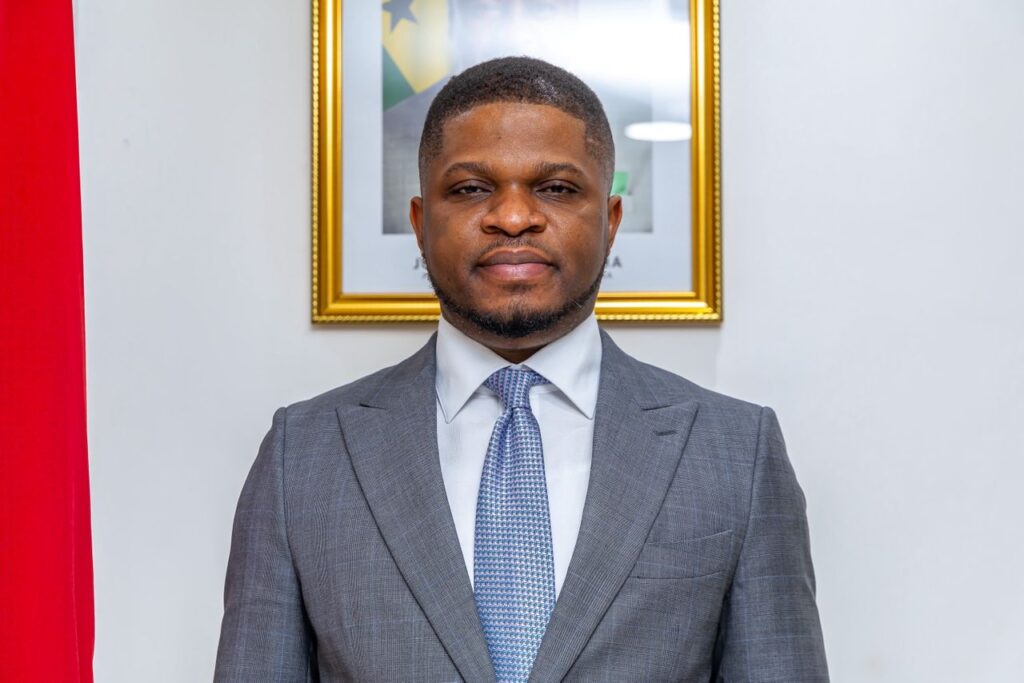As Ghana’s new GoldBod initiative takes shape, the government has moved swiftly to address and debunk the misconceptions that have surrounded the project in recent weeks. This ambitious plan, designed to transform the country’s gold industry, has faced growing scrutiny, with some critics claiming it will create conflicts of interest and even criminalize the possession of gold by ordinary Ghanaians. However, a closer examination of the facts reveals a very different story – one of an initiative poised to empower miners, strengthen the national economy, and safeguard individual gold ownership.
At the heart of the debate are two key allegations: that the GoldBod will function as both a regulator and a commercial player, leading to inherent conflicts of interest, and that the GoldBod Act will prohibit Ghanaians, including chiefs and traditional leaders, from possessing gold. But legal expert and acting Managing Director of the Precious Minerals Marketing Company, now GoldBod, Sammy Gyamfi, Esq., has provided a clear and comprehensive response to these claims.
According to Mr. Gyamfi, the GoldBod is not a regulator and a commercial player in the sense or context being canvassed by some, and that the GoldBod is simply a monopoly in the trading and export of gold. He emphasizes that the GoldBod’s regulatory functions are limited to ensuring compliance by its own licensed agents, rather than overseeing the broader gold industry.
“The regulatory powers of the GoldBod are intended to ensure compliance with its Act and regulations by licensed service providers who trade for and on behalf of the GoldBod. The GoldBod will not be regulating competitors but rather, its own licensed agents. Thus, the issue of conflict of interest does not arise at all,” he opined.
The MD says this makes it clear that the GoldBod’s role as a monopoly in gold trading and export is distinct from any regulatory authority over the industry as a whole. “This structure ensures that the GoldBod can focus on its core mandate without creating the kinds of conflicts that have been suggested,” he explains.
Addressing the misconception about gold ownership, Mr. Gyamfi stresses that the GoldBod Act does not in any way criminalize the mere holding, possession, or storage of gold by Ghanaians. “What constitutes a crime under the GoldBod Act is the HOARDING of gold, not the possession of it,” he clarifies.
Hoarding, as defined in the Act, refers to the accumulation or storage of gold beyond reasonable business needs, with the purpose of manipulating market conditions or creating artificial scarcity. Crucially, the Goldbod Bill explicitly states that this hoarding offense “does not apply to a person in possession of gold for personal or value storage purposes.”
“This means that Ghanaians can continue to own and possess gold for cultural, traditional, or investment reasons without fear of penalty. The claim that possessing gold for ancestral, traditional, or personal reasons constitutes a crime under the Goldbod Bill is totally false,” Mr. Gyamfi stressed.
In fact, one of the key functions of the GoldBod is to promote the use of gold as a store of value among Ghanaians, as part of a broader effort to reduce reliance on the US dollar and strengthen the Ghana cedi. “The Goldbod will be actively encouraging Ghanaians to purchase gold products like coins, tablets, and bars for the purpose of value storage,” he emphasized.
By positioning gold as a reliable store of value, the GoldBod aims to empower Ghanaians to safeguard their wealth and reduce dollarization of the economy. This is a far cry from the narrative of the GoldBod as a threat to individual gold ownership.
The GoldBod has also implemented several mechanisms to ensure fair pricing for gold purchased from miners in Ghana. These include a transparent pricing methodology, regular price reviews, competitive bidding processes, effective monitoring and enforcement, and capacity-building programs for small-scale and artisanal miners.
The GoldBod MD noted that “The GoldBod’s pricing framework is designed to take into account global gold prices, production costs, and a fair profit margin for miners. This will be publicly available, allowing miners to understand how the prices are determined.”
The GoldBod is expected to conduct regular reviews of the pricing formula, involving consultations with mining associations and other stakeholders. This ensures the system remains aligned with market conditions and provides a fair deal to miners.
Moreover, it will organize competitive bidding processes for the purchase of gold from licensed small-scale and artisanal miners, helping to secure the best possible prices. The GoldBod’s regulatory powers will also enable it to monitor the activities of its licensed agents, ensuring they adhere to the agreed pricing mechanisms and do not engage in unfair practices.
“The GoldBod is investing in training and support programs to help miners improve their operations and negotiation skills. This will empower them to better understand their rights and advocate for fair prices, reducing the risk of exploitation,” he added.
As this analysis demonstrates, many of the concerns raised about the GoldBod appear to be unfounded. The initiative is focused on establishing a national monopoly on gold trading and export, while actively promoting gold ownership among Ghanaians and ensuring fair pricing for miners.
“The Goldbod represents a transformative moment for Ghana’s gold industry. By strengthening the position of the country in the global gold market and empowering local miners, it has the potential to significantly boost the national economy and improve the livelihoods of those who rely on this vital resource,” Mr. Gyamfi concluded.
With a clear understanding of the GoldBod’s purpose and powers, the true benefits of this ambitious initiative can be fully appreciated. Rather than a threat, the GoldBod may well be the key to unlocking Ghana’s golden potential.




